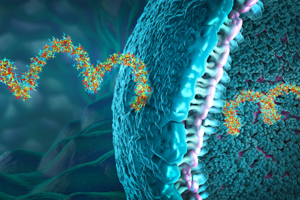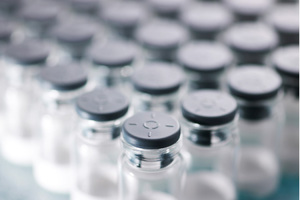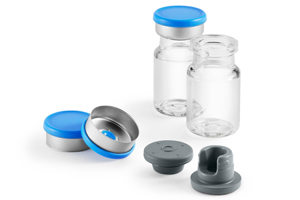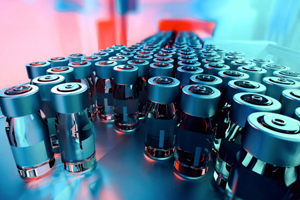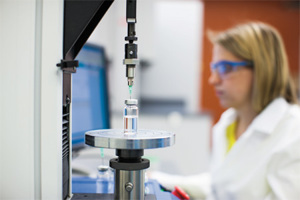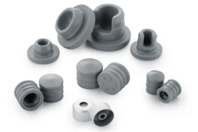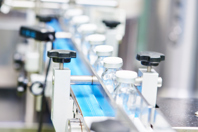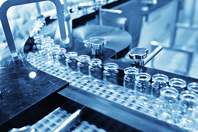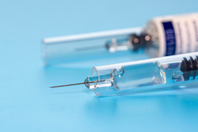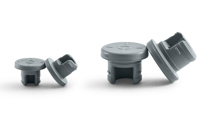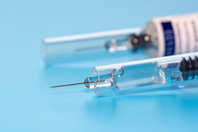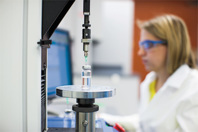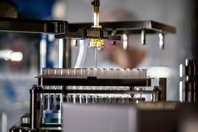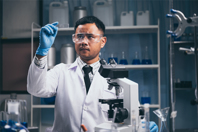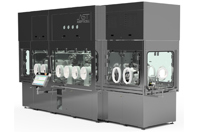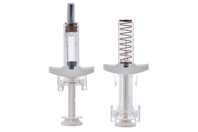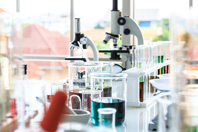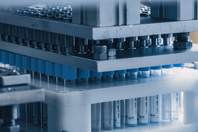INJECTABLE DRUG DELIVERY ARTICLES
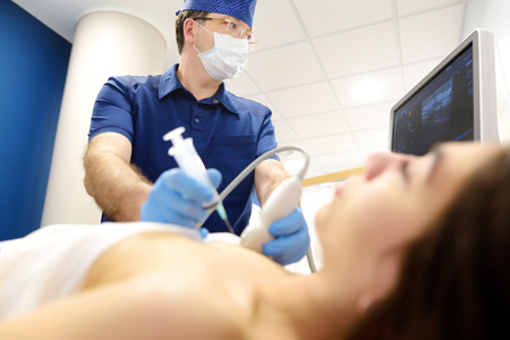 Injecting Cancer Killers: Intratumoral Therapy For Solid Tumors
Injecting Cancer Killers: Intratumoral Therapy For Solid Tumors
Intratumoral injection bypasses the tumor’s physical defenses entirely, killing cancer cells and creating a personalized immune response that destroys solid tumors.
INJECTABLE DRUG DELIVERY RESOURCES
-
As drug products increase in complexity, become more specialized, and trend towards self-administration, it is more important than ever to have a reliable drug closure system.
-
Read the second part of this series on the most common questions encountered by an expert focused in scientific affairs and technical solutions for glass.
-
Examine a case study where two 20mm vial CCSs were compared using the DeltaCube™ Modeling Platform and experimentally show the link between prediction and real performance.
-
Discover how regulatory bodies are adopting a risk-based approach to address the unique challenges of genetic nanomedicines, and stakeholder engagement is essential.
-
Multi-dose vials enable dosing flexibility to a diverse group of patients with different dosages dependent on patient age/weight and can create efficiency and reduce packaging waste when vaccines are administered to large populations.
-
Learn about formulation development challenges for prefilled syringes as well as considerations for reducing the time it takes to launch safer, more convenient, and cost-effective products for the patient.
-
An optimized nest design for pre-fillable cartridges was designed using numerical simulation and data analytics to improve efficiency in pharmaceutical production.
INJECTABLE DRUG DELIVERY SOLUTIONS
-
Leverage a pre-verified, integrated syringe platform. Accelerate timelines and reduce costs by eliminating drug-independent testing while streamlining regulatory submissions through one source.
-
Our system is ideally suited for the production of pre-clinical, clinical and niche commercial injectable products in vial, syringe, and cartridge formats.
-
Unlock superior performance for peptides and proteins using nanotechnology. Achieve high drug loads for subcutaneous delivery and stable, aerodynamic dry powders for deep-lung inhalation.
-
As part of Stevanato Group’s commitment to R&D, our analytical testing facilities focus on investigating physico-chemical properties of primary packaging materials and components and studying the interactions between container closure system and drugs. Stevanato Group relies on a multi-disciplinary team of highly skilled professionals, including, scientists, engineers, pharmaceutical chemists and biotechnologists. Their knowledge and experience covers a range of specialized areas including container closure systems and drug-delivery devices.
-
ASEPTiCell is integrated with isolator-barrier technologies to fully enclose and tightly control the aseptic environment for ideal conditions for processing sterile drug products. The system can be configured with a Restricted Access Barrier System (RABS) or an aseptic isolator to provide uninterrupted aseptic conditions during production. With isolator integrated systems, the ASEPTiCell is completely compatible with repeated in-situ bio-decontamination using hydrogen peroxide to further enhance the sterility assurance of the system.
-
The BD UltraSafe Plus 2.25 mL Passive Needle Guard features an ergonomic design to help support injection comfort and ease of use.
-
Our formulation development and material sciences experts have over 30 years’ experience in pre-formulation and solid state characterization.
-
Ascendia specializes in the development of market suitable formulations for poorly water soluble drug substances. Based on the pre-formulation data package and the delivery requirements for the product, we recommend a comprehensive formulation development strategy. We understand that each formulation is unique and must address the specific challenges associated with poor solubility, inadequate bioavailability, and/or unacceptable physical/chemical stability. We also understand the urgency companies have for progressing their pipeline, and our approach maximizes the probability of success by exploring multiple formulation options in parallel if necessary.
-
Sterile fill-finish and device assembly capabilities span global sites, offering scalable solutions, analytical testing, and regulatory compliance for combination products and small-batch technical programs.
-
Integrated device assembly, labeling, and packaging solutions streamline pharma delivery, ensuring compliance, scalability, and patient-centric design from clinical trials to commercial production.



